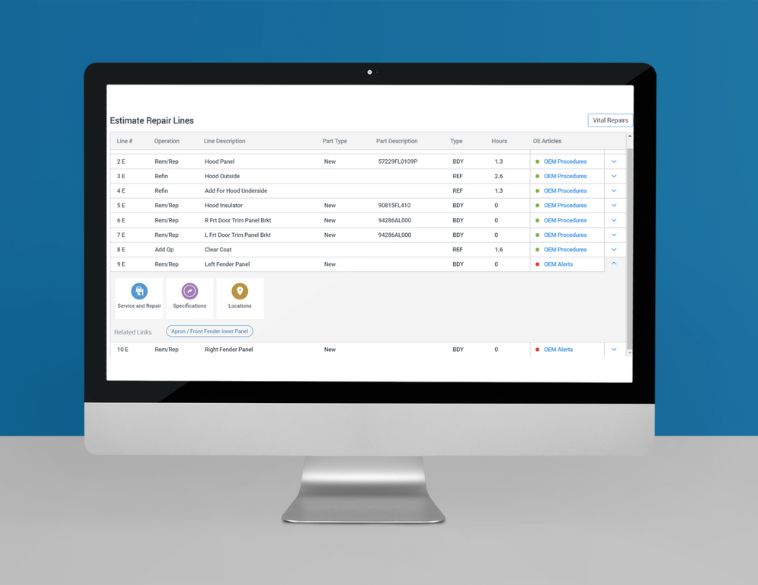In today’s world, the imperative to address climate change is undeniable.
As businesses across various industries strive to reduce their carbon footprint, the automotive aftermarket sector stands at a crucial juncture. Embracing net zero principles becomes not only an environmental responsibility but also a strategic pathway for sustainable growth. This article will dive into pragmatic approaches for automotive aftermarket businesses to navigate the transition toward net zero and unlock new opportunities for operational efficiency.
12 Months Progress on Simplicity Car Care’s ESG Objectives:
Before jumping into the content of the article, I hope to look back at the last 12 months of Simplicity Car Care’s pathway to net zero emissions. Over the last 12 months, our network has achieved significant milestones in our journey towards net zero, underscoring our commitment to environmental sustainability. Simplicity Car Care is excited to report that we are currently in the process of onboarding an additional 20 locations onto our data collection program, a crucial step in enhancing our understanding of emissions across our network. Moreover, we are calculating the next cycle of emissions data for our original beta program, ensuring that we have comprehensive insights to guide our decarbonization efforts. The enthusiasm and support we have received from our franchisees and supply chain have been nothing short of tremendous. Through collaborative efforts and a shared vision for a greener future, we have developed working competencies and implemented new policies that align with our journey to net zero. In a recent poll conducted among our franchisees, an astounding 87.5% expressed a positive impression of our ESG program and goals. This overwhelming response underscores the remarkable uptake and cultural adoption of our network to embrace new challenges and deliver tangible results.
Navigating Scope Three Emissions:
Within the scope of emissions categories, scope 3, categories one (Purchase Goods and Services), nine (Downstream Transportation) and ten (Processing of Sold Goods) represent significant opportunities for decarbonization and sustainability initiatives. One message is clear: focusing on the processing of goods sold and procurement practices holds immense potential for reducing carbon emissions. By addressing these categories collectively, businesses such as collision repairers can target over 80% of their carbon dioxide equivalent emissions (CO2e), making them crucial focal points for sustainability efforts. As businesses navigate the complexities of sustainability, a concerted focus on these categories can yield tangible environmental benefits while driving progress towards net zero goals.
The Link Between Lean Processing and Decarbonization
At the core of decarbonization lies the principle of lean processing. By eliminating waste from operational processes and implementing incremental improvements in efficiency, businesses can significantly reduce their carbon footprint. Lean methodologies not only enhance productivity and resource utilization but also facilitate the transition towards sustainable practices. From optimizing energy consumption to streamlining supply chain logistics, lean processing serves as a foundational strategy for driving decarbonization efforts within the automotive aftermarket sector.
Compounding Growth and Operational Efficiency
Achieving net zero requires a concerted effort to compound growth while enhancing operational efficiency. Incremental improvements in revenue generation, coupled with reductions in the cost of goods sold and operating expenses, contribute to overall profitability while advancing decarbonization goals. Leveraging technologies such as UV primers and infrared systems enable businesses to optimize energy usage and enhance productivity, further driving down carbon emissions and positioning them as leaders in sustainable practices.
Embedding Net Zero Principles in Strategic Planning:
To successfully transition towards net zero, businesses must embed sustainability principles into their strategic planning processes. From marketing and sales to procurement and finance, every business unit plays a crucial role in driving sustainable practices and fostering a culture of environmental responsibility. By engaging all stakeholders and aligning business objectives with net zero targets, automotive aftermarket businesses can navigate the transition effectively while capitalizing on emerging opportunities in the evolving market landscape.
As the automotive aftermarket industry embarks on the journey towards net zero, it must embrace pragmatic approaches that integrate sustainability into every facet of business operations. By prioritizing lean processing, strategic procurement, and operational efficiency, businesses can not only reduce their carbon footprint but also unlock new avenues for growth and innovation. As stewards of environmental stewardship and agents of change, automotive aftermarket businesses have the opportunity to lead the transition towards a more sustainable future, one driven by the principles of net zero and a commitment to environmental stewardship.
Paul Prochilo, Chief Executive Officer and Alyssa Marchese, Manager ESG
Simplicity Car Care



